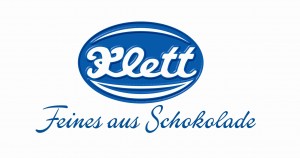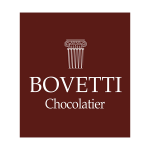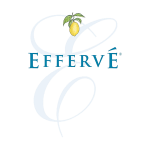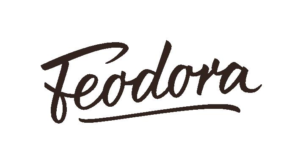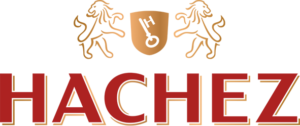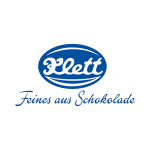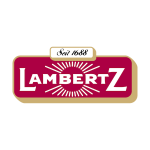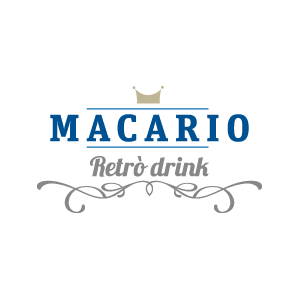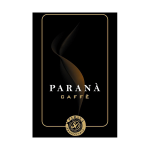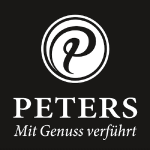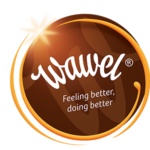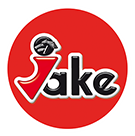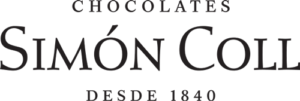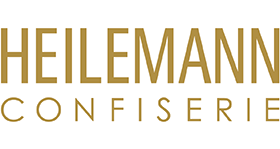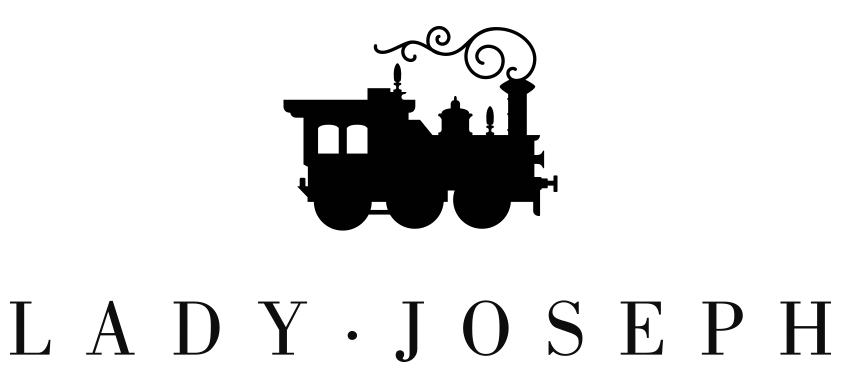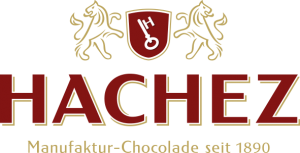 Hachez: Hachez is proud of being one of the very few chocolate makers who still maintain the traditional ways of making prime chocolates starting with the roasting of the cocoa beans exclusively at their own facilities. HACHEZ stands for a tempting combination of traditional and modern values. In their eyes, mastering new challenges and preserving traditional values are of equal importance.
Hachez: Hachez is proud of being one of the very few chocolate makers who still maintain the traditional ways of making prime chocolates starting with the roasting of the cocoa beans exclusively at their own facilities. HACHEZ stands for a tempting combination of traditional and modern values. In their eyes, mastering new challenges and preserving traditional values are of equal importance.
The chocolatier Joseph Emile Hachez was the company founder and ‘father’ of a rapidly growing family of select chocolate products. In 1890 Joseph Emile Hachez produced a sophisticated recipe for the production of fine chocolate articles. He selected cocoa varieties exclusively from the world’s best growing regions, and lovingly crafted the outstanding ingredients into exquisite specialities. Hachez still use this recipe for success today.
The Bremer HACHEZ Chocolade GmbH & Co. KG was established by Joseph Emile Hachez, a chocolatier of Belgian origin, on July 1, 1890. Since that day, fine HACHEZ chocolate articles have been created at the company’s Westerstrasse headquarters in the heart of Bremen. One autumn day in 1923, the company proprietor found inspiration in the leaves that wafted down as he strolled through the park. He immediately resolved to recreate the fascinatingly intricate form of these leaves in chocolate. Today, the Bremer HACHEZ Chocolade GmbH remains one of the world’s foremost manufacturers of premium chocolate products.
Only cocoa from 3% of the worldwide harvest meets Hachez quality standards. HACHEZ exclusively uses premium cocoa varieties – predominantly from South America – for its chocolate. Every batch of cocoa beans is checked very meticulously for its characteristics. Only when the flavor, aroma, moisture content, structure and external quality are right, does HACHEZ use the cocoa beans to produce its chocolate. It takes over 100 hours to fashion them into the finished product. HACHEZ is one of the few companies that still have control over each stage of production.
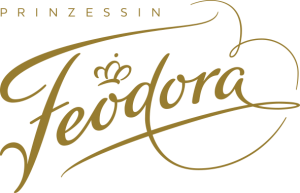 Feodora: FEODORA Chocolade GmbH & Co. KG developed out of a sugar refinery established in Tangermünde on the Elbe River in 1826. Following World War II, the company was expropriated and parts of the factory were dismantled. It found a new and fitting site in Bremen where the company then relaunched its chocolate and praline production. Since then FEODORA has been made in the heart of Bremen.
Feodora: FEODORA Chocolade GmbH & Co. KG developed out of a sugar refinery established in Tangermünde on the Elbe River in 1826. Following World War II, the company was expropriated and parts of the factory were dismantled. It found a new and fitting site in Bremen where the company then relaunched its chocolate and praline production. Since then FEODORA has been made in the heart of Bremen.
The FEODORA brand of high-quality chocolates and pralines came into being in 1910 and owes its name to Princess Feodora. Sugar industrialist Hermann Meyer from Tangermünde developed a new, very elegant chocolate recipe and asked Empress Auguste Victoria for permission to name his chocolate after her sister, Princess Feodora. She agreed and since then her sister’s personal signature as well as the crown and coat-of-arms of the royal house of Schleswig Holstein have adorned the noble packaging of fine FEODORA chocolates. Even today FEODORA’s fine chocolate specialties are made according to the original recipes.
The cocoa is roasted in the hot air flow of a spherical roaster and then pulverized by means of a rolling and breaking process until it is extremely fine. Conventional consumer products never achieve this degree of fineness. The chocolate mass is blended for up to 72 hours in a so-called “conche”, a shell-shaped container, while moisture, gases and acids are released. What remains is the unmistakably smooth flavor so typical of FEODORA’s exclusive and exquisite products. The highest standard of quality combined with traditional recipes, decades of experience and love of detail go together in producing unique pleasure.

Peters: 1936: Ice Cream from the “Cold Franz” was the first slogan, with which the name Peters became well-known in Lippstadt. As a confectionary master Franz Peters founded a small ice cream parlour in the heart of Lippstadt. During winter it became a café. Soon the Café Peters also became well-known outside the borders of the city for its exceptionally delicious tarts and biscuits, which were served there.
1975: Starts the first chocolate manufacture. At the beginning they only supply small confectionaries with fresh truffles. Soon they achieve the first big customer called Most. Soon Lufthansa and others follow.
1977: The high quality of Peters looms on the horizon. Soon Café Peters gets the award “Goldene Kaffeetasse”, which is similar to the Michelin Star. 1996: The company expands the export business.
2008: Norbert Frochte-Peters develops the Pecaré®. Finest truffle fillings are enrobed with a razor-thin shell. The manufacturing process is patent-protected by Peters, the Trademark and the design is protected as well. Peters’ products are currently shipped to more than 31 countries. Thanks to the innovative assortment Peters is able to grow even in these difficult times.
2011: Peters’ Outlet Store was turned into a Flagstore. On 200 m² customers will find the whole PETERS range presented in a very elegant and stylish way. Customers enter the showroom through a chocolate box and leave it through a Pecaré Tin. Visitors will also find a range of delicacies out of Peters’ bakery – freshly produced.
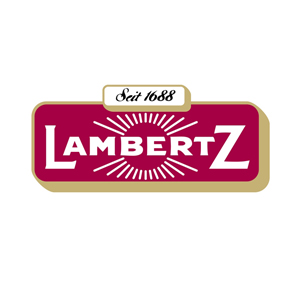
Lambertz: Lambertz is one of the leading German manufacturers of gingerbread, biscuits, tartlets and other traditional confectionary products sold either all year round or in the run-up to Christmas and the festive season. The company was founded in 1688 in Aachen, a city in the west of Germany. Its brands, which include Lambertz, Kinkartz, Weiss and Haeberlein-Metzger, enjoy worldwide popularity.
1688: The “Printe”, originally a biscuit with an impressed (“printed”) image, has long been associated with the German city of Aachen. Henry Lambertz was one of many who upheld traditional practices and made use of moulds and recipes that had been handed down through time. On 15 September 1688 he received a licence to operate a “Backhaus”, a small building with an oven, situated on Aachen’s marketplace.
1820: Henry Lambertz IV invents a process that is still used today: he sweetened the “Printe” dough with sugar syrup and brown sugar, rolled it flat and cut it into triangles. The spicy “Kräuterprinte” is born and Lambertz lays the foundations for future success.
1872: Another descendent of Henry Lambertz dips a “Printe” in chocolate: the “Lambertz Schokoprinte” is the first German chocolate-coated biscuit and paves the way for the huge variety of this delicious Aachen speciality that we enjoy today.
1938: Lambertz develops the “Saftprinte”, a softer cousin of the original “Printe”. However, its success is delayed for several years by the political instability of the 1930’s and the ensuing war. By the end of the war, 75 percent of factory buildings are destroyed.
1963: A new production facility is built on the edge of Aachen.
70er: By acquiring the established brands Weiss, Kinkartz and Haeberlein-Metzger and consolidating the strengths of these names, Lambertz ensured the continued existence of regional traditions and set them on a broader footing.
1998: Lambertz receives the sought-after “Goldener Zuckerhut” award from “Lebensmittel Zeitung”, a weekly newspaper for the German food industry. Foundation of Lambertz Polonia.
Early 1999: The Lambertz Group takes over two long-established brands, Kinkartz and Haeberlein Metzger, from Schöller in Nuremberg.
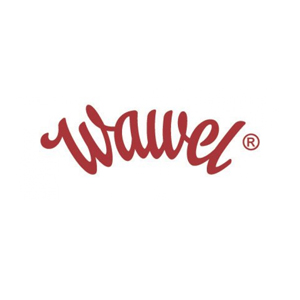
Wawel: The Wawel Brand was borne out of the combination of exceptional Polish and Swiss recipes and chocolate artistry perfected over the years. Adam Piasecki established a confectionary company in Kraków in 1898. In 1910, as a recognized confectioner, he opened a chocolate factory. After the Second World War the three competing factories were combined into one company and in 1951 the Wawel Confectionery Plant was established.
Soon afterwards the factory became one of the finest confectionery producers in Poland. The Wawel company logo has been modified several times over the years. In 1992 the government decided to privatize the company, due to the mounting demands of the market and the changing economic situation. In 1997 the Polish Securities and Exchange Commission allowed public trade of the company’s shares.
The Wawel SA Confectionery Plants Company’s shares debuted on the Warsaw Stock Exchange on March 11, 1998. The company’s name was changed to Wawel SA in 2005. The investment in Dobczyce was completed in 2006. The entire production was gradually moved to the industrial zone, where a modern production plant was emerging.

Maestrani: For over 150 years maestrani has been wholeheartedly committed to creating a very special delicacy: chocolate. Maestrani is dedicated chocolatiers who produce sweet delights for young and old alike. In their factory at Flawil in the Canton of St. Gallen, Switzerland they produce excellent chocolate and confectionery specialities of the brands maestrani, Minor and Munz, as well as Private Labels and Chocolate products for promotion campaigns. Today, maestrani Schweizer Schokoladen AG is owned by three families.
1846: Aquilino Maestrani started to manufacture chocolate. 1852: Aquilino opened business in the Krongasse. This year is therefore considered the actual founding year of today’s company. 1875: The demand of maestrani products exceeded the existing production capacity. 1880. Aquilino Maestrani died. The business, which was inherited by his three sons, continued to flourish under the name of A. Maestrani & Co. 1912: The business was renamed Maestrani Schweizer Schokoladen AG. 1998: Purchase of the chocolate factory Munz. 1999: New factory building in Flawil.
maestrani seems to have a sixth sense for chocolate. Over the years, maestrani has evolved from the status of a pioneer in chocolate-making into a successful modern enterprise offering an outstanding selection of chocolates and confectionery.
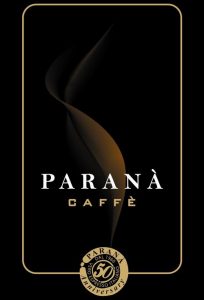 Parana: Torrefazione Paranà company is part of Giannelli Group, which includes twelve companies of wine-producing, food and beverage, catering, restaurants, cafeterias, Italian gourmet food shops, book shops and museum sites. Torrefazione Paranà was founded in Rome in 1960 by Mr. Ruggero Giannelli. With a longstanding expertise in the art of roasting coffee, Torrefazione Paranà company is currently a dynamic and modern industry, with superior quality of products, definitely competitive prices and maximal offer differentiation to satisfy any needs of taste and market.
Parana: Torrefazione Paranà company is part of Giannelli Group, which includes twelve companies of wine-producing, food and beverage, catering, restaurants, cafeterias, Italian gourmet food shops, book shops and museum sites. Torrefazione Paranà was founded in Rome in 1960 by Mr. Ruggero Giannelli. With a longstanding expertise in the art of roasting coffee, Torrefazione Paranà company is currently a dynamic and modern industry, with superior quality of products, definitely competitive prices and maximal offer differentiation to satisfy any needs of taste and market.
Torrefazione Paranà since 1960 with Italian tradition and handcrafted experience, supported of modern technology, roasted the coffee beans and create the supreme blends, rich in flavour full of body with a perfect balance and delicious unforgettable aftertaste for give to clients a coffee with an unmistakable flavour.
After 40 years of activity in the Italian market as coffee sellers and owner of many important cafeterias and supplying more than 500 clients, from 1997 Torrefazione Paranà started to export Paranà Caffè brand in the international market, Paranà Caffè is distributed in Europe, America, Australia and China.
Torrefazione Paranà in the year 2010 became a training point of I.N.E.I (Institute National Espresso Italiano) and has also been certified from I.N.E.I for the two coffee blends Espresso Italiano coffee beans and Extra Bar Premium coffee beans.
The best quality pure Arabica Organic coffee beans have been cultivated at over 1500 meters and exported to Caffè Paranà by a selection of small producers from Central and South America. Their care and skill using traditional methods has been certified Fairtrade and Organic Ensuring that Caffè Paranà has treated their growers fairly and rewarded them properly for their endeavors. Paranà Coffee is exclusively made with coffee beans from the selection of the best five quality of Washed Arabica from South and Central America and Africa (Santos, Costa Riga, Guatemala and Ethiopia) and the best quality of Robusta from India.
Each origin of coffee beans is roasted individually and then expertly blended, this process guarantees the perfect roasting time for each quality of coffee beans. The final result of this production process create the excellent Caffè Paranà blends, to obtain a coffee that always reflects in its body aroma and taste, the most classical Italian tradition of making Espresso Italiano.
Paranà Caffè be awarded from the International Coffee Tasting 2008 the competition organized by International Institute Tasting Coffee, sponsored by the Italian Chamber Commerce of Brescia, crowned Paranà Caffè for the quality and taste of its blend (Espresso Italiano coffee beans). Twenty-six Italians and foreigners tasters, tasted 130 coffee provenance from all around the world Paranà Caffè receive the highest recognition for the production of Espresso Italiano coffee blend awarded in the category of Italian blend for Espresso Bar. Paranà Caffè with the coffee blend Espresso Italiano coffee in beans, has also been awarded with a gold medal from the I.I.A.C International Institute Coffee Taster in the competition of International Coffee Tasting Asia 2013 which was held in Japan and one more time on 2017 in China.
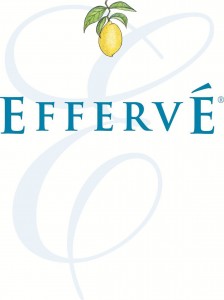 Efferve: Eurobubblies Inc., founded in 1992, based in Ashland, Massachusetts, in West Boston, conducts its business activity all over the US and in Canada. Eurobubblies is constantly expanding to facilitate the demand for the large range of Western European specialty gourmet products the company imports. European factory S.E.M. DES SOURCES DE SOULTZMATT located in rich and beautiful region of Alsace, France.
Efferve: Eurobubblies Inc., founded in 1992, based in Ashland, Massachusetts, in West Boston, conducts its business activity all over the US and in Canada. Eurobubblies is constantly expanding to facilitate the demand for the large range of Western European specialty gourmet products the company imports. European factory S.E.M. DES SOURCES DE SOULTZMATT located in rich and beautiful region of Alsace, France.
Efferve’s are all-natural sparkling lemonades utilizes fresh mineral water from the springs located in the “Vosges” Foothills. Since the Soutzmatt Springs was located and noted by Franciscan Monks for its high-quality pure water in 1272, the pure spring water of the region has been celebrated by the Romans for its curing effects. Today this water still known for its distinctive and uniquely fresh taste.
Made with secret all-natural recipes the syrup includes a mixture of lemon natural juices and flavours, sugar and citric acid. All products are GMO-free, gluten-free and allergen-free. The combination of the syrup and the all-natural spring water provides a subtle refreshing taste of the lemon base to the lightness and fizz of the sparkling spring water. Enjoy Efferve signature embossed glaas bottle with the famous traditional swing top. The Efferve line of all-natural lemonade is “A pleasure for the eyes and a feast for the mouth”.
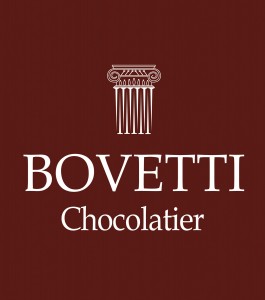 Bovetti: Valter Bovetti (was born in Italy, moved to France on 1986.a.) started to manufacture chocolate nails and tools in his garage on 1994. The new plant located in the very touristic and famous gastronomic area of Perigord opens on 2004 – production workshop, chocolate museum and shop on the same place. Creation of Cocoa pasta awarded Sial Paris “Innovation 2004”.
Bovetti: Valter Bovetti (was born in Italy, moved to France on 1986.a.) started to manufacture chocolate nails and tools in his garage on 1994. The new plant located in the very touristic and famous gastronomic area of Perigord opens on 2004 – production workshop, chocolate museum and shop on the same place. Creation of Cocoa pasta awarded Sial Paris “Innovation 2004”.
Bovetti exports it’s range in all Europe and in the USA for the year 2005. Release of the new range of “Aperitif chocolates” awarded “Innovation Sial 2006”. 2010 – Bovetti exports to 37 countries. The organic range (made with a single origin chocolate from Santo Domingo) is also certified Fairtrade by Flocert for the year 2012.
Bovetti’s chocolate is a blend of beans from three sources: Ecuador, Ghana and Papua. All chocolates are made using pure cocoa butter and without the addition of vegetable fat (these fats are much cheaper than cocoa butter but do not contain the health benefits). Since 2008 they banned using soybean lecithin in their production.
Valter Bovetti always selects the highest quality for its ingredients: walnuts from Perigord, Italian hazelnuts (Roman or Piedmont), sea salt from Guerande, sweet chili from Piment d’Espelette… The dyes used are mostly natural and non-azoic. Bovetti’s range includes chocolate bars in different size, coated chocolates (nuts, almonds, candied orange, lemon… coated with chocolate), Aperitif chocolates (spices coated with chocolate) were created to accompany a glas of wine, a glass of champagne as an aperitif or used in cooking: on a meat or fish just before serving, in a salad, on ice cream or sorbet at the end of meals.
Bovetti’s range also includes VERITABLE® chocolate spreads, Bimbi® moldings and Bovetti pasta® (7 varieties) because when Valter Bovetti was a child he was helping his father to make pasta in their restaurant in Piedmont.
Bovetti answers the HACCP (Hazard Analysis Critical Control Point) standard.
Klett: Company foundation 1953 by Walter Klett. The company Klett Schokolade GmbH & Co. KG, is a traditional family owned and managed company. For over 60 years they produce successful delicious premium hollow chocolate figures and are a reliable and quality-conscious partner for customers and end consumers. The well-known chocolate figures stand for a successful and high-quality brand, which is known under the brand “Klett”.
The main focus is on the Christmas and Easter season. Today they produce around 200 different chocolate items and can realize special customer inquiries. Klett is a well-known and high quality brand which combines tradition of craftsmanship with modern manufacturing processes, produces according to the HACCP system and is IFS certified (Version 6), uses only the best selected raw materials and ingredients for their chocolate, refines the chocolate liquor only with natural vanilla aroma and use only finest milk chocolate, keeps strict hygiene and quality standards and trains their qualified staff constantly.
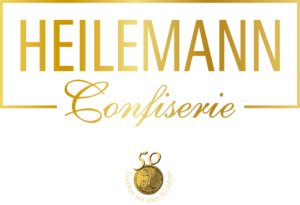 Heilemann: The HEILEMANN success story began more than 60 years ago. In 1955 pâtissier Karl Heilemann started a small scale production of hand-crafted chocolates in the town of Memmingen, located in the beautiful “Allgäu” region in the southern part of Bavaria. Before long, distribution expanded and in 1977 the company moved to Woringen, a small village near Memmingen.
Heilemann: The HEILEMANN success story began more than 60 years ago. In 1955 pâtissier Karl Heilemann started a small scale production of hand-crafted chocolates in the town of Memmingen, located in the beautiful “Allgäu” region in the southern part of Bavaria. Before long, distribution expanded and in 1977 the company moved to Woringen, a small village near Memmingen.
Thanks to the growing demand for HEILEMANN chocolates, their production facilities were extended once again in 2007, combining state-of-the-art production equipment, traditional recipes and know-how. HEILEMANN is still today an owner managed company. Up to 150 skilled employees are creating, producing and marketing their unique masterpieces. „NO preservatives, NO artificial colours or flavours“ is their basic principle for every recipe. To follow the highest food standards is a matter of course and since 2015 they are holder of the UTZ certificate.
With a significant portion of handcraft, the factory creates fine chocolates, pralinés, hollows, chocolate gifts and seasonal items. The selection of finest cocoa, the use of only the best ingredients, creation of extraordinary recipes and loving decoration of their products always aim at one main idea: quality without any compromise!
 Viba: Viba sweets GmbH is a mid-sized confectionery company in Schmalkalden in Thuringia, Germany. Long tradition since 1893. Viba brand is a leader in German nougat praliné bars with a market share of more than 60%*. Germany’s first fruit bar manufacturer – manufacturing competence since the 1960’s. Viba stands for outstanding product and service quality, certified by IFS certificate on “Higher Level”; excellent taste through best raw materials and modern production methods; decades of experience married with professional and technological competence; innovation and continuous evolution as a basis of their corporate culture.
Viba: Viba sweets GmbH is a mid-sized confectionery company in Schmalkalden in Thuringia, Germany. Long tradition since 1893. Viba brand is a leader in German nougat praliné bars with a market share of more than 60%*. Germany’s first fruit bar manufacturer – manufacturing competence since the 1960’s. Viba stands for outstanding product and service quality, certified by IFS certificate on “Higher Level”; excellent taste through best raw materials and modern production methods; decades of experience married with professional and technological competence; innovation and continuous evolution as a basis of their corporate culture.
1893: Opening of the “Café Viebahn“ in Schmalkalden by brother and sister Willi Viebahn and Anna Reim with their homemade sweets.
1920’s: The product range is extended by different praliné and marzipan varieties, which are soon produced industrially.
1967: The first fruit bars are developed, as an energy snack for top German athletes.
1990-1992: Karl Heinz Einhäuser and Holger Storch acquire the company‘s majority shareholding.
2002: Renaming the company as “Viba sweets GmbH“ including total re-branding and re-launching of all products.
2004: The first Viba retail shop is opened – today one of more than 40.
2012: Viba opens the first “World of Experience“ in Schmalkalden, offering an interactive exhibition about praliné, chocolate and conscious living, a flagship store and a restaurant.
2015: Viba currently employs about 240 people and is counted among the most important praliné and fruit bar manufacturers in Germany.
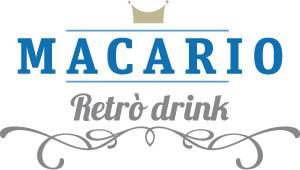 Macario: It was the 50’s. During summer afternoons, at the Macarios, grandma Vittoria created refreshing drinks for adults and children. Ingredients were simple, tastes unforgettable: everyone who tried her drinks was enthusiastic. So, the family decided to begin a small homemade production, in order to let others enjoy that genuine flavor. The company prospered for some years gaining favor with customers; then the founder, becoming elderly, decided to close the business. The story of that special experience, together with the memory of grandma and her recipes, has encouraged one of the grandsons to revive the project maintaining that same, old family spirit. Macario joined Holdim group in 2015. The brand has a new lease on life, and yet its tradition and mission remain unchanged: to quench thirsts with style, offering drinks characterized by simple and authentic tastes. As grandma Vittoria used to do, in the 50’s, at the Macario’s home.
Macario: It was the 50’s. During summer afternoons, at the Macarios, grandma Vittoria created refreshing drinks for adults and children. Ingredients were simple, tastes unforgettable: everyone who tried her drinks was enthusiastic. So, the family decided to begin a small homemade production, in order to let others enjoy that genuine flavor. The company prospered for some years gaining favor with customers; then the founder, becoming elderly, decided to close the business. The story of that special experience, together with the memory of grandma and her recipes, has encouraged one of the grandsons to revive the project maintaining that same, old family spirit. Macario joined Holdim group in 2015. The brand has a new lease on life, and yet its tradition and mission remain unchanged: to quench thirsts with style, offering drinks characterized by simple and authentic tastes. As grandma Vittoria used to do, in the 50’s, at the Macario’s home.
5 reasons for choosing Macario:
1. quality – retro outside, modern inside. All beverages are produced with avant-garde procedures and equipment, in compliance with food safety standards;
2. style – always fashionable. The seven pin-ups wink at a well identified collective imagination: a postcard from the past that will never fade;
3. simplicity – traditional simplicity. For Macario, being retro means to reintroduce the excellence of evergreen tastes. Fresh and authentic, just as you would imagine them;
4. exclusive – a chic smile for all budgets. The seven Macario retro drinks add value to your offer by giving it an exclusive touch: the cherry on top for your customers;
5. versatility – different ways of drinking. The 275 ml bottle allows flexibility of use: from the straight satisfying experience to mixing it in cocktails and long drinks.
 Windel: The Windel GmbH & Co. KG is European based confectionary manufacturer, operating in all global regions, and renowned for its creative and innovative gifts. The company can look back on a long tradition. It was founded in 1900 and remained a regional sweets and spirits wholesaler until the sixties of the last century. 1968 and in the following years Alfred Windel (the third family generation) and his wife Mechthild Windel develop the idea of the sweet presents: Delicious candy in a creative wrapping, often together with an additional product with an interesting consumer use, for example a cute plush toy for children or a pretty gift basket for adults. As a result of many innovative product ideas the business grew dynamically. In 1986 chocolate-filled advent calendars extended the product range. In this segment Windel is truly a global leader offering one of the most comprehensive ranges of advent calendars with unique and creatively led designs.
Windel: The Windel GmbH & Co. KG is European based confectionary manufacturer, operating in all global regions, and renowned for its creative and innovative gifts. The company can look back on a long tradition. It was founded in 1900 and remained a regional sweets and spirits wholesaler until the sixties of the last century. 1968 and in the following years Alfred Windel (the third family generation) and his wife Mechthild Windel develop the idea of the sweet presents: Delicious candy in a creative wrapping, often together with an additional product with an interesting consumer use, for example a cute plush toy for children or a pretty gift basket for adults. As a result of many innovative product ideas the business grew dynamically. In 1986 chocolate-filled advent calendars extended the product range. In this segment Windel is truly a global leader offering one of the most comprehensive ranges of advent calendars with unique and creatively led designs.
Today Windel offers suitable sweet presents for all gift occasions and target groups. Among these are many popular classics, which are part of the tradition already. But their own product development ensures that there are constantly new ideas and innovative product concepts. So every year the customers can look forward to new developments. Windel exports its products worldwide into more than 50 countries. The business is led in the fourth generation by Fred Windel.
 Emoti: The brand EMOTI by Elysberg Confiserie BVBA is proud to go in the footsteps of the best tradition of Belgian chocolate and willingly accepts the obligation to meet standards of the highest quality of all products in their portfolio. For more than 15 years, EMOTI brings the high-class chocolate products to the markets all around the world with an ever-growing passion.
Emoti: The brand EMOTI by Elysberg Confiserie BVBA is proud to go in the footsteps of the best tradition of Belgian chocolate and willingly accepts the obligation to meet standards of the highest quality of all products in their portfolio. For more than 15 years, EMOTI brings the high-class chocolate products to the markets all around the world with an ever-growing passion.
During the process of bringing customers the best possible products, they pay an unconditional attention to the detail. It doesn´t matter if customer is buying the chocolate for himself or for someone else. They understand that in any case, customer demands only the first-rate quality and they are obliged to offer nothing less. All of their products fulfill the strict requirements of the International Food Standard (IFS) as well as the internal rules of quality management. The family business respects and honors old traditions but are open to the state-of-art innovations as well. They take the customer service very seriously. In their business, they also feel the strong responsibility to the society and the environment. Therefore, they are introducing new flagship series of products free of the palm oil as it has severe negative impacts on the environment because its production leads to excessive deforestation and the loss of many animals´ natural habitats in areas where it is produced, mainly in the developing countries.

